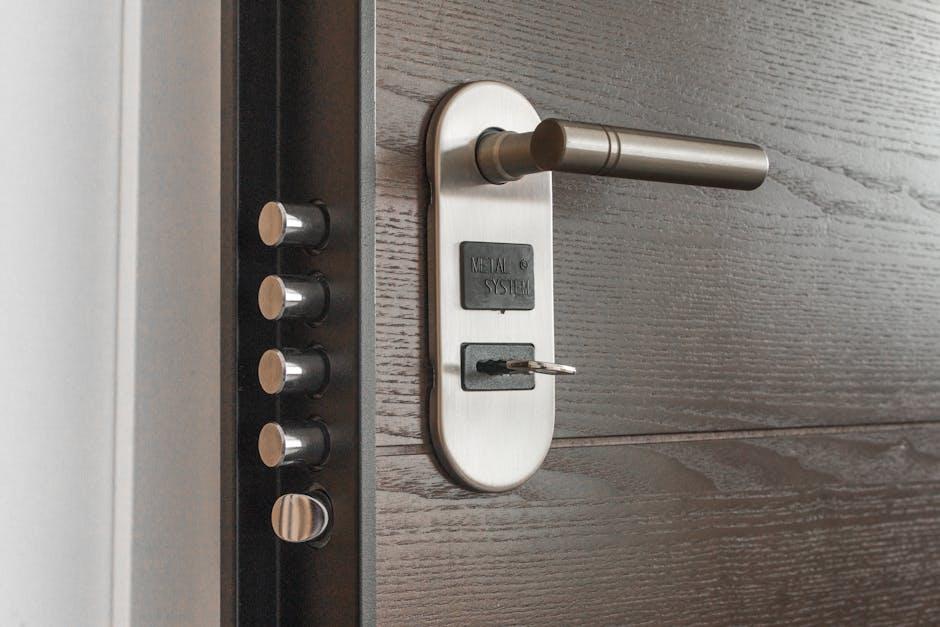In today’s fast-paced world, securing a loan-rates/” title=”Discover the Best US Cities for Affordable … … Rates”>home loan can feel like navigating through a maze. While the dream of home ownership is within reach for many, the increasing prevalence of scams targeting unsuspecting borrowers is a concerning reality. “Stay Smart and Safe: Your Guide to Avoiding Home Loan Scams” aims to equip potential homeowners with the knowledge they need to recognize and steer clear of deceitful practices. By understanding the tactics employed by scammers and arming yourself with the right strategies, you can protect your financial well-being and make informed decisions on your journey to owning a home. Let’s delve into the essentials that will help you stay vigilant and smart as you explore the home loan landscape.
Understanding the Common Types of Home Loan Scams
Home loan scams can be deceptive and take various forms, often targeting vulnerable individuals seeking financial assistance. Understanding these scams is crucial for safeguarding your finances. Here are some common types of home loan scams to watch out for:
- Bait-and-Switch Scams: In this scenario, scammers advertise attractive loan terms to lure homeowners, only to switch them to less favorable conditions once the borrower is committed.
- Foreclosure Rescue Scams: Victims facing foreclosure may be approached by individuals claiming to provide assistance, often requiring upfront fees and offering little to no real help. These schemes can delay the foreclosure process, preventing you from utilizing legitimate remedies.
- Refinance Scams: Fraudsters may pose as legitimate mortgage brokers or lenders, offering fraudulent refinancing options to homeowners struggling with payments. Always verify the identity and credentials of anyone offering refinancing services.
- Appraisal Fraud: This scam involves inflating the value of a property to secure a larger loan. Unsuspecting borrowers may find themselves paying much more than the actual worth of their home, which can lead to severe financial consequences.
- Phishing Scams: Scammers may send emails or texts that appear to be from legitimate lenders, asking you to verify personal or financial information. Always ensure that you are communicating with authorized entities before sharing sensitive data.
To help you identify and avoid these scams, consider the following protective measures:
| Tip | Details |
|---|---|
| Research Lenders | Always verify the credentials of lenders and brokers. Look for licensed entities through state regulatory agencies. |
| Read Reviews | Check online reviews and consumer reports for feedback on lenders you are considering. |
| Trust Your Instincts | If an offer seems too good to be true, it probably is. Be skeptical of deals that promise quick fixes or substantial savings without due diligence. |
| Consult Professionals | Consider talking to a financial advisor or a HUD-certified housing counselor before making major decisions. |
By being aware of these common scams and following these tips, you can protect yourself and ensure a safer home loan experience.

Recognizing Red Flags and Warning Signs
When navigating the complex world of home loans, being able to identify potential scams is crucial. Here are some red flags and warning signs that can help you protect yourself while seeking financing:
- Unexplained Cash Deposits: Be wary of any borrower showing significant cash deposits that don’t have clear sources. This could indicate attempts to hide true financial stability or capabilities.
- Inconsistencies in Information: Watch out for discrepancies between the information provided in the loan application and details found in credit reports. This could indicate undisclosed debt or inaccurate reporting.
- Pressure Tactics: If you’re being rushed to make decisions, it’s a red flag. A legitimate lender will allow you time to think things through and ask questions.
- Unusual Fees or Charges: Be cautious if you encounter unexpected charges or fees during the application process. A transparent lender will always explain their fees clearly.
- Strange Identification: If a counterparty presents questionable identification or contact information, this is a warning sign that they may not be legitimate.
- Promises of Guaranteed Approval: If it sounds too good to be true, it usually is. Be skeptical of lenders promising loan approvals without a thorough review of your financial documents.
- Air Loans: Beware of offers for loans to nonexistent borrowers. This type of fraud involves awarding funding for fictitious properties or borrowers.
Here’s a quick table of common red flags:
| Red Flag | Description |
|---|---|
| Unexplained Cash Deposits | Large deposits without clear sources may indicate fraud. |
| Inconsistencies | Differing information between application and credit reports can signal hidden debt. |
| Pressure Tactics | Urgency to make decisions is often a warning sign. |
| Strange Identification | Suspicious or incomplete ID can suggest a scam. |
| Promises of Guaranteed Approval | Offers that sound too good to be true warrant skepticism. |
By staying vigilant and recognizing these warning signs, you can help safeguard yourself against home loan scams and ensure that you’re working with reputable lenders.

Proven Strategies for Protecting Yourself
Protecting yourself from home loan scams requires vigilance and the right strategies. Here are some proven methods to help safeguard your finances:
- Research Thoroughly: Always investigate the lender. Check for reviews, ratings, and any complaints filed with the Better Business Bureau or the Consumer Financial Protection Bureau.
- Verify Licenses: Ensure your lender is licensed to operate in your state. You can usually verify this with your state’s financial regulatory agency.
- Beware of Unsolicited Offers: If you receive loan offers via email or phone, approach them with caution. Legitimate lenders generally don’t solicit through cold calls or unsolicited emails.
- Understand the Terms: Always read loan agreements carefully. Pay close attention to interest rates, closing costs, and any fees associated with the loan.
- Trust Your Instincts: If something feels off or too good to be true, trust your gut. Scammers often create a sense of urgency; take your time to review your options.
- Use Official Channels: When comparing loans or mortgage options, use official websites such as HUD or FHA to find trusted lenders.
| Warning Signs of a Scam | What to Look For |
|---|---|
| High Pressure Tactics | Lenders pushing you to close quickly without giving you time to review. |
| Lack of Transparency | Unwillingness to provide clear answers to your questions or share loan details. |
| Unusual Payment Methods | Requests for payment via wire transfer or prepaid debit cards. |
| No Physical Address | A company that only operates online with no brick-and-mortar location. |
By staying informed and being cautious, you can protect yourself from potential home loan scams. Always prioritize your financial safety and seek advice from trusted sources.

Resources for Reporting and Seeking Help
When it comes to navigating the complex world of home loans, it’s essential to know where to turn for help and how to report suspicious activities. If you suspect a scam or need assistance, the following resources can guide you through the process:
- Consumer Financial Protection Bureau (CFPB): The CFPB offers resources for consumers to report unfair, deceptive, or abusive practices in the home loan market. You can file a complaint directly on their website: www.consumerfinance.gov/complaint/.
- Federal Trade Commission (FTC): As the nation’s consumer protection agency, the FTC handles complaints about deceptive mortgage practices. Their website provides essential information on how to file a complaint: www.ftc.gov/complaint.
- National Association of Realtors (NAR): If you’re working with a realtor, the NAR has resources for reporting unethical real estate practices. Visit their site for guidance: www.nar.realtor.
- State Attorney General: Each state has an Attorney General’s office that addresses consumer fraud. Check your state’s website for resources and to report scams.
- Local Legal Aid Offices: If you need legal assistance, local legal aid organizations provide free or low-cost services. Find one in your area through www.lsc.gov.
- Better Business Bureau (BBB): Report scams or unethical businesses to the BBB for tracking purposes and to alert other consumers. Start your report here: www.bbb.org.
| Resource | Description | Website |
|---|---|---|
| CFPB | Report unfair loan practices. | consumerfinance.gov |
| FTC | Consumer protection agency for mortgage practices. | ftc.gov |
| NAR | Resources for real estate scams. | nar.realtor |
| State Attorney General | State-level consumer fraud assistance. | N/A |
| Local Legal Aid | Access to legal assistance for those in need. | lsc.gov |
| BBB | Report and track unethical business practices. | bbb.org |
Always keep your personal information secure, and if something feels off, don’t hesitate to reach out to these organizations for guidance and support. Your vigilance plays a crucial role in staying safe from home loan scams.

The Conclusion
As we conclude our journey through the intricate world of home loan scams, it’s essential to remember that vigilance is your best ally. By arming yourself with knowledge and staying informed, you significantly reduce the risk of falling prey to deceitful practices. Always approach offers with a critical eye, ensure you verify lenders, and maintain open communication with trusted financial advisors. Your home is not just a place; it’s a cornerstone of your future. Protect it wisely, and stay smart and safe in the ever-evolving landscape of home financing. Let this guide be your beacon as you navigate the complexities of securing the right home loan without compromising your peace of mind.











